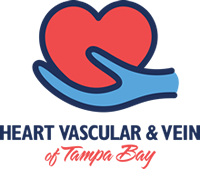What is Sudden Cardiac Arrest (SCA)?
Understanding SCA for Tachycardia
WHAT IS SUDDEN CARDIAC ARREST?
350,000 lives are lost to Sudden Cardiac Arrest (SCA) every year in United States.
SCA is an electrical problem with the heart that triggers a dangerously fast heart rate (ventricular tachycardia) or irregular rhythm (ventricular fibrillation). If not treated immediately, SCA can be fatal. Approximately 95% of people who experience an out-of-hospital cardiac arrest event and are not treated by defibrillation within 10 minutes will die.
SCA vs. HEART ATTACK
Sudden cardiac arrest is not the same as a heart attack. A heart attack is a “plumbing” problem, caused by blockage(s) in the arteries leading to the heart and killing heart muscle. A heart attack may lead to a sudden cardiac arrest event.
RISK FACTORS ASSOCIATED WITH SCA
- Previous heart attack or SCA
- Family history of SCA or other heart disease
- Heart failure
- Low ejection fraction
- Rapid or abnormal heartbeats starting in the bottom chambers of the heart
WHAT ARE THE SYMPTOMS OF SCA?
- Dizziness
- Racing heartbeat
- Loss of consciousness
TREATING SCA THROUGH DEFIBRILLATION
The most effective way to treat SCA is through defibrillation. It involves delivering electrical shock to your heart to restore the normal heartbeat. There are two types of devices that can deliver these electrical shocks: AEDs and ICDs.
AUTOMATED EXTERNAL DEFIBRILLATOR (AED)
An AED is a portable device used by emergency response teams or the general public to shock the heart, giving the heart a chance to restart normal electrical activity and resume beating effectively. However, if defibrillation is delayed by more than 10 minutes, the survival in adults is less than 5%.
IMPLANTABLE DEFIBRILLATOR (ICD)
An ICD is a device implanted underneath the skin, usually near the collarbone. One or more wires, called leads, run from the ICD through the veins and into the heart. It continuously monitors the heart rhythm. If it detects an abnormal or fast heart rhythm, low or high energy shocks are sent to reset the heart to a normal rhythm.
ICDs are proven to be 98% effective in treating dangerous ventricular arrhythmias that can lead to sudden cardiac arrest.
Information on this site should not be used as a substitute for talking with your doctor. Always talk with your doctor about diagnosis and treatment information.
